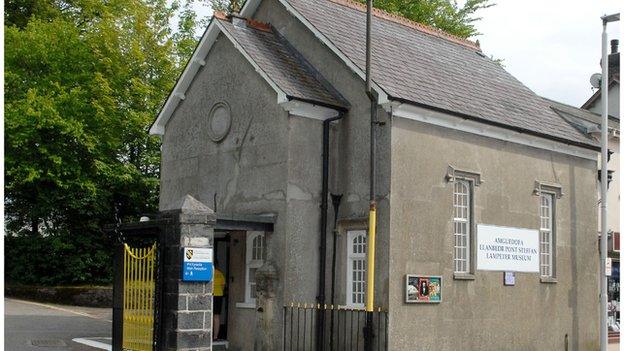Lampeter: Students and town fear for campus' future
- Published
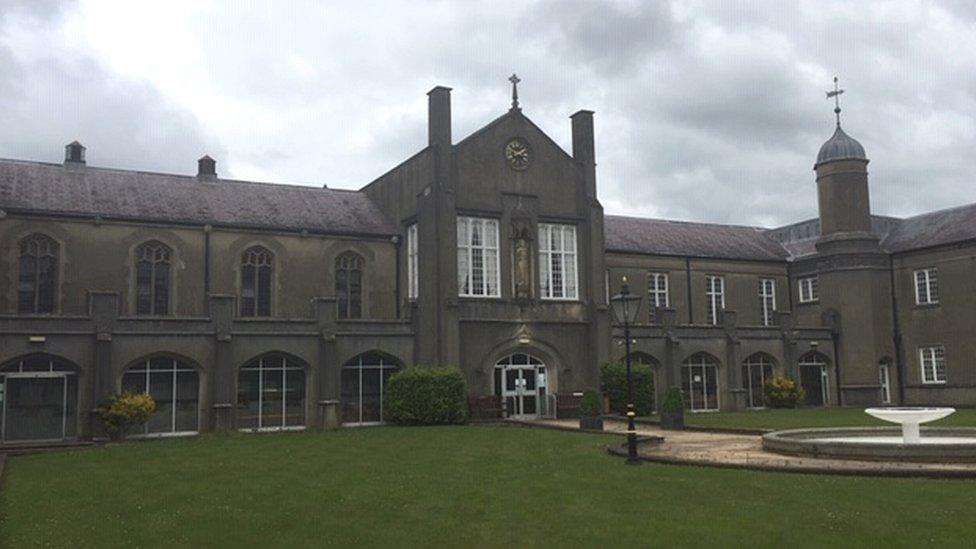
There has been a university in Lampeter since 1822
There are concerns about the future of Wales' oldest academic institution, with some students saying they feel "betrayed".
Entire departments and staff numbers have been cut at the Lampeter campus of University of Wales Trinity Saint David.
Just 360 students now study there and one member of staff said they "don't really see a future" for the campus.
The university said it has invested in the site and has plans for the future.
But some students say they have taken their questions to senior management and have been unable to get any answers.
"It's very frustrating, the lecturers are great and the middle managers are doing their best but upper management aren't giving us the time of day.
"It's quite insulting," said Alexander Naylor, who has just finished his second year studying ancient history.
"Considering the tuition fees have tripled since I first applied to university, it doesn't seem like we're getting value for money - it's a bit of a waste of time to be honest.
"There is a chance that in 10 or 15 years time, there won't be anyone left here," he said.
In the college's heyday in the 1990s, there were about 1,500 full-time undergraduate students in Lampeter.

Kirsty Parkes is one of the 360 students at Lampeter - down from around 1,500 in the 1990s
Kirsty Parkes, a first year archaeology student, said she knew a lot of students who have "already dropped out or are considering dropping out or switching universities".
She said she felt "frustrated and a bit betrayed" because the university "markets itself as a uni that cares about the students".
There has been a university in the town of Lampeter since 1822 - making it the oldest academic institution in Wales, and one of the oldest in the UK.
Originally founded as St David's College or Coleg Dewi Sant, it became part of the federal University of Wales in 1971.
In 2008 the university began the process of becoming part of the new University of Wales Trinity Saint David which has other campuses in Carmarthen and Swansea.
Lampeter has specialised in a number of subjects including theology, classics, archaeology and ancient history.
But whereas the other sites in Carmarthen and Swansea have seen investment and development, it has been a different story in Lampeter.
Fears for the future
Whole departments have gone, staff numbers have been cut and the college has switched to a "block-learning" system where modules are crammed into short periods of time in order to cut down on teaching time.
In light of last week's announcement that the university is looking to lose around 100 jobs across the board and make savings of £6.5m, staff at Lampeter are even more fearful for their futures.
One member of staff who did not want to be identified, said: "I'm very concerned - I don't really see a future for Lampeter at the moment.
"A lot of our existing students are trying to transfer to other unis. Next year will be even worse with student numbers.
"People are worried, terrified. We invest so much in our students - many subjects do well in student satisfaction surveys and in the league tables but this is due to investment from the staff.
"We've done so much to provide good quality teaching, but the morale is so low - people have left or had to leave and there's hardly anyone left.
"It's always been a traditional university - the 200th anniversary celebration is coming up in 2022 but I think many of my colleagues and students are doubtful whether it will still be a university in three years' time."
'Totally committed'
Gwilym Dyfri Jones, associate pro vice-chancellor at the University of Wales Trinity Saint David, said: "The university is totally committed to its three core campuses in Lampeter, Swansea and Carmarthen and will now focus on enriching and developing its academic portfolio to ensure Lampeter campus services the needs of the locality, the region, Wales and internationally.
"Ten years ago, this campus was about to close. Today, it remains a viable educational institution."
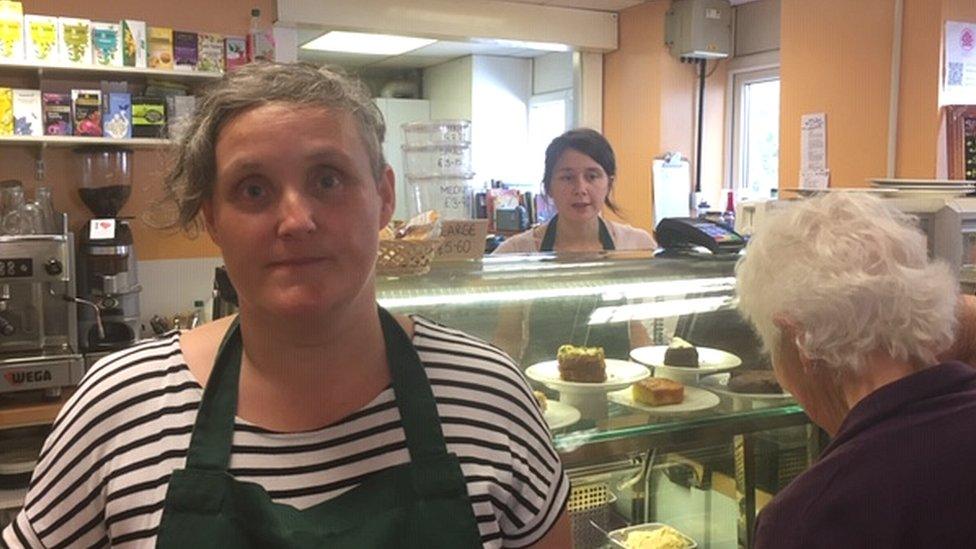
Stella Teasedale owns one of the businesses that benefits from the student population
But there is concern also in the wider community. As a rural town, Lampeter has always relied heavily on student numbers to boost the local economy.
Stella Teasdale runs the Mulberry Bush deli and cafe on the main street. It is a favourite meeting place for students.
"It's a shame for the town - there used to be a big influx at the start of every academic year but there's much fewer people here now," she said.
"It definitely plays a role in the town's economy - you experience it at first hand talking to people who come in here," she said.
- Published20 June 2019
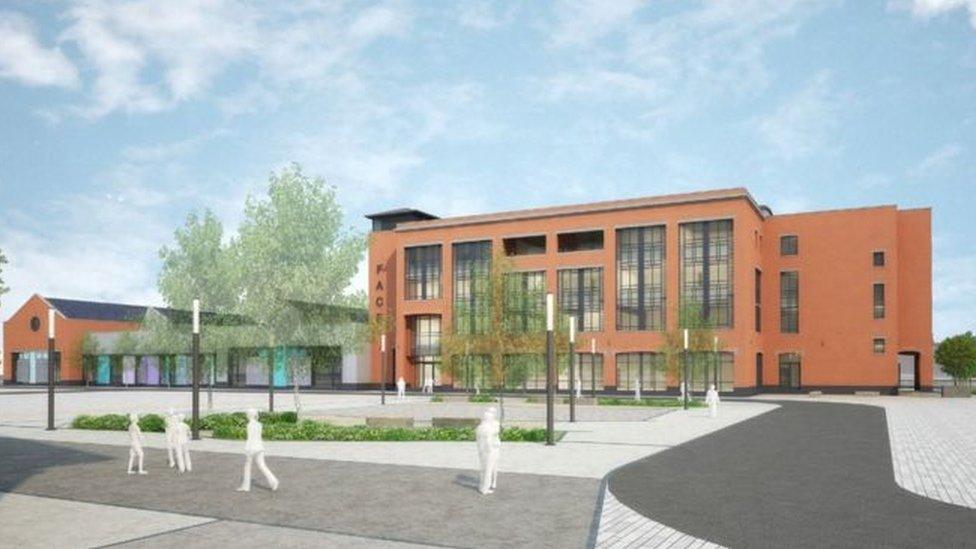
- Published31 May 2019
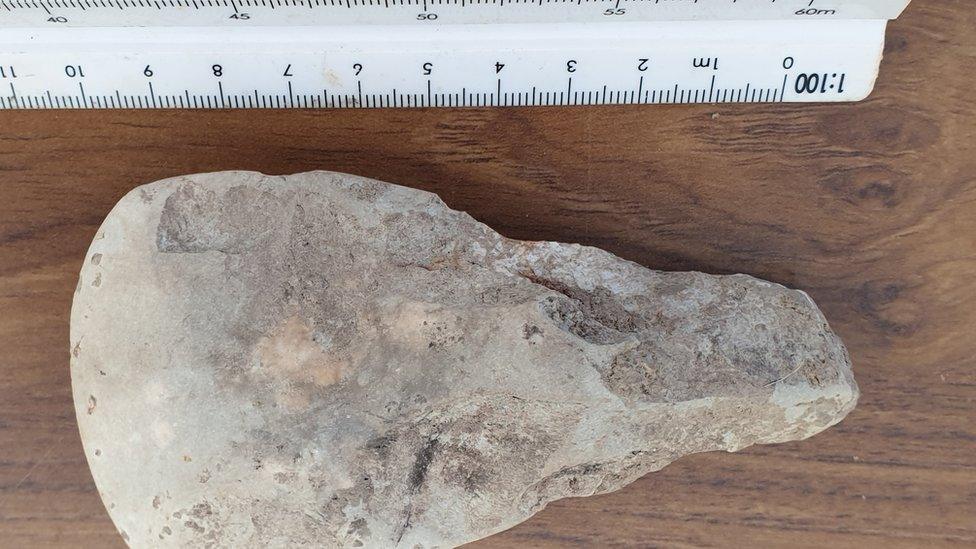
- Published14 June 2019
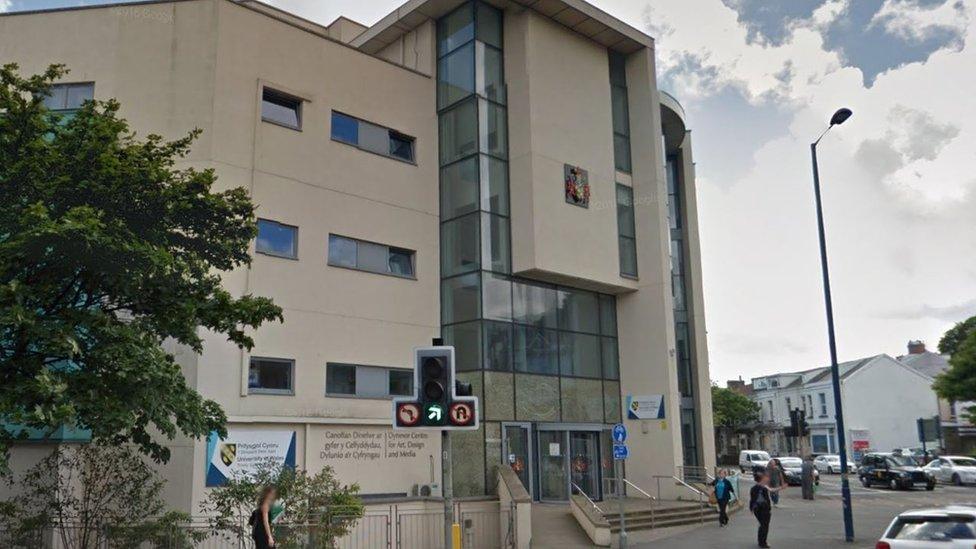
- Published22 May 2014
